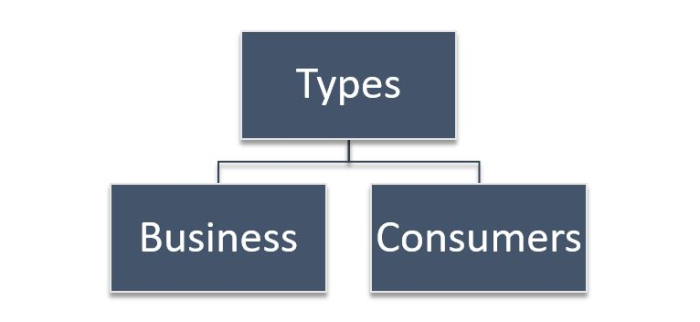
 Data Structure
Data Structure Networking
Networking RDBMS
RDBMS Operating System
Operating System Java
Java MS Excel
MS Excel iOS
iOS HTML
HTML CSS
CSS Android
Android Python
Python C Programming
C Programming C++
C++ C#
C# MongoDB
MongoDB MySQL
MySQL Javascript
Javascript PHP
PHP
- Selected Reading
- UPSC IAS Exams Notes
- Developer's Best Practices
- Questions and Answers
- Effective Resume Writing
- HR Interview Questions
- Computer Glossary
- Who is Who
What is Database Marketing?
A methodical strategy for gathering, combining, and processing customer data is database marketing. Database marketing, often known as customer relationship management, is a type of direct marketing. The business gathers and stores data from both current and potential clients in its database. Businesses can better understand and market to potential customers thanks to the process of gathering this data, which could result in more potential sales.
Database marketing is a personalized marketing strategy that leverages a database of current and potential customers to promote goods and services while achieving personalization objectives. Database marketing, also known as customer relationship management, gathers information on prospects in order to create customized messages that cater to their wants and needs. The database includes a variety of information, including demographic information and past purchases.
Marketers in database marketing use the information gathered for the following purposes
Get to know your customers better,
Choosing the right markets for particular marketing campaigns (through customer segmentation),
Provide the customers with expert offers by comparing the value of the customer to the company.
Marketers are able to learn more about potential clients because of this. Using this type of data, one can quickly determine the most effective strategy for reaching various customers. Database marketing is not just gathering client information. The ability to comprehend consumer behavior is essential to database marketing. The solutions offered are tailored to the consumer once marketers get a handle on consumer behavior. Tutorials, videos, and specialized goods or services are examples of solutions.
Types of Database Marketing
Database marketing comes in two varieties. Database marketing for both consumers and businesses.
Customer Database Marketing
Aiming B2C marketers, this form of marketing. They employ tactics like hosting contests, raffles, and discount codes to get this information. Marketers can build targeted offers and distribute them to specific customers via email, social media, and other channels once the database is ready. The database may easily be personalized once it has been separated. This implies that consumers market goods in accordance with their preferences.
Business Database Marketing
The needs of businesses that do trade with other businesses are met by business database marketing. Data from many sources, including industry publications, registrations for events, and demos, are collected as part of our data collection process.
The B2B database is smaller than the consumer marketing database when the two databases are compared. This is because huge target clients are the primary focus of B2B marketers.
Importance of Database Marketing
More customer data is available to businesses now than ever before, so it's critical to use that data to produce results. Database marketing makes use of a wealth of data to support the

development of more tailored marketing campaigns that connect with your target audience and maximize your sales potential.

The following are the main explanations for why database marketing is becoming increasingly significant ?
By segregating current customers from new leads, you may streamline the customer segmentation process.
Set the most important accounts first and aid in predicting client behavior.
Effective for evaluating novel concepts and goods. For instance, Google releases new features to a small number of chosen advertisers before making them available to everyone.
Streamline the process of obtaining feedback and comprehending client requirements.
Improve client loyalty and brand relevance by maximizing engagement and relationship-building
It fosters a connection of trust with the trusted advisor and increases his affinity for your business. It can also be applied to upcoming marketing campaigns.
Benefits of Database Marketing
Database marketing benefits customers, advertisers, and marketers by
An excellent technique to separate your clients into first-time purchasers and devoted patrons is by identifying customer segments.
The database aids marketers in choosing the most effective ways to contact prospects.
One can prioritize the clients who are more crucial to your company with the aid of a database.
By giving customers access to a range of materials, businesses may increase client retention.
Since you're not wasting money on people who aren't likely to respond, it is more economical.
This enables marketers to develop more pertinent communications that are tailored to specific clients based on their likes and tastes.
Marketers can forecast customer behavior if they have a thorough grasp of that behavior.
Additionally, the input can be gathered by using the database.
This gathered data is kept in a database. This database can be kept in a data warehouse by big businesses. A data warehouse gets records from various departments that include pertinent data about consumers or prospects. Large amounts of data can also be processed by businesses thanks to data warehouses. Utilizing marketing software, data can be filtered through database analysis. Data can be divided according to underlying habits and demographics. The database has to be updated as frequently as possible.
Data on clients or potential clients are likely to alter over time. Companies should concentrate on gathering information that is unlikely to change, such as usernames, contact information, and email address, to prevent gathering out-of-date data.
Famous Examples of Database Marketing
Database marketing examples include e-commerce apps that utilize transaction history data to more quickly and properly evaluate customer service calls or e-commerce apps that use transaction data to predict when a client will place an order. There are apps that index grocery delivery services.
But one can find actual instances of database marketing on LinkedIn, Amazon, and Facebook.
One of the best examples of database marketing is how Facebook segments user data. Facebook divides user data into categories based on geography, first and last names, phone numbers, email, date of birth, gender, and interests to provide a tailored experience.

Additionally, marketers and advertisers who utilize Facebook to display their ads can benefit greatly from this Facebook-specific database. Facebook currently has information on over 2 billion users, roughly. It fosters a connection of trust with the thought leader and increases his affinity for your business. It can also be applied to upcoming marketing campaigns.
Amazon
Amazon gathers information about the user's searches, purchases, and wishlist items. Amazon uses the collected data to try to promote new things to potential customers by comparing this to what other users have purchased. A recommendation engine is developed using this technique using consumer behavior.
LinkedIn makes advantage of database marketing as well. A customer database of almost 660 million businesspeople can be found on LinkedIn.
Database marketing has advanced thanks to LinkedIn's use of databases in a number of monetization tactics, such as LinkedIn Premium, Talent Solutions, Sales Navigator, and LinkedIn Ads. The customer base of LinkedIn is used by marketers to perform B2B marketing and advertising campaigns.
Conclusion
To produce quality leads and maximize conversions, focused or personalized content is the fundamental objective of database marketing efforts. The response of the target audience to such efforts determines their effectiveness. It's important for businesses to confirm that database marketing generates the necessary amount of conversions. In conclusion, it is evident that database marketing provides a wealth of options to connect with and convert potential consumers in addition to data and information. The audience needs to remember marketers; therefore, they must figure out how to use this data.

